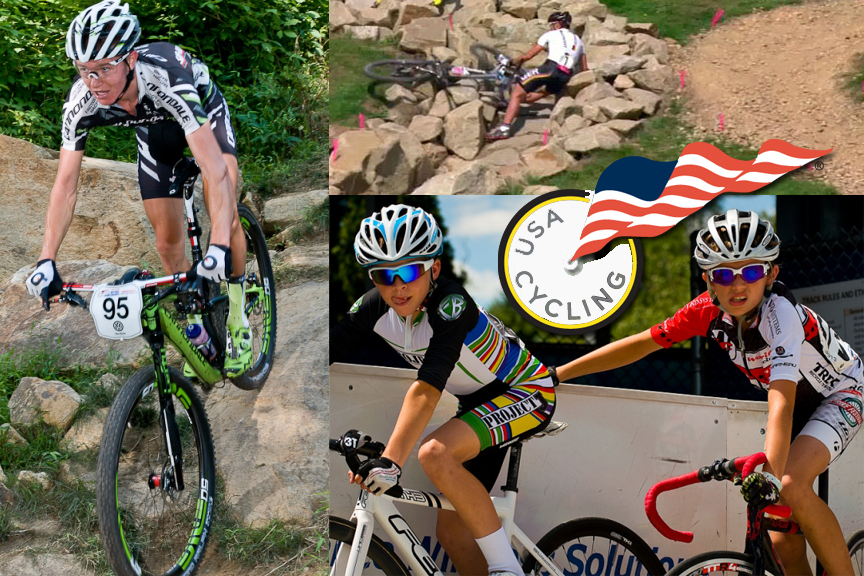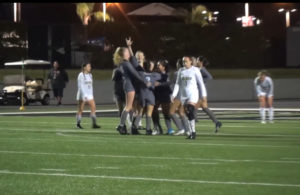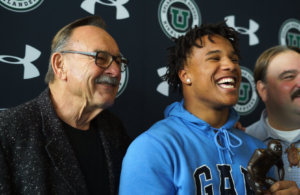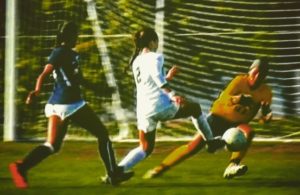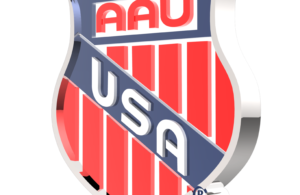- 2019/2020 Recap: Lady Scots Conquer First Round of CIF!
- 2019 Recap: Justin Flowe Wins the Dick Butkus Award
- Upland Lady Scots Have Their Revenge
- What is BBCOR?
- Tommy John, A Name To Be Feared
- The Game Plan
- Too Much Tackle?
- Is Cheer A Sport?
- Transgender Inclusion in Youth Sports
- Are You Counting Sheep Right?
Biking to the Top in Youth Cycling
- Updated: September 30, 2014
Competitive cycling has dramatically grown in the U.S. in recent years with individual teams popping up everywhere and full-fledged leagues and race series in several states. Like biking? Starting a youth cycling club is easier than you thought. USA Cycling offers Juniors Programs, High School Cycling, Collegiate Cycling Clubs and adult USA Cycling Clubs. Local resources are available through 34 local associations, over 2600 clubs, and 3000 competitive and non-competitive cycling events. USA Cycling also organizes athlete development programs such as training camps, international racing, world championships and Olympic Games. You can also get insurance coverage, licenses and member benefits. An annual license is $70 for adult and $35 for junior/collegiate competition. One-time races cost $15 and $10 for mountain bikes.
The first step is finding an adult sponsor and starting a club. Find an adult cyclist in the community or a staff member at your school with a passion for cycling. Get permission from the school administrator and gather interested students. There are bound to be at least a couple students interested in some form of cycling: Road, Mountain, Cyclocross, Track, or BMX. Parents are also essential to the short and long term success of the club for the logistics. Once you have official recognition and approval from your school, register with USA Cycling as an official interscholastic cycling club. Besides access to an existing support structure of license coaches, local associations, and support staff, you will also receive certain member benefits like discounts on cycling and insurance products with USA Cycling’s Affinity Partners. Membership also allows clubs to host races, club practices, camps and non-competitive events with liability protection, rules and access to licensed officials. More importantly, your club membership enables you tobe part of USA Cycling’s results and ranking system and feed into the National Development Program. Membership is free for all new interscholastic clubs and only $50 each year after. For information on becoming a coach or insurance, USA Cycling has all the information. To find an existing interscholastic team or league, you can look at the USA Cycling database of clubs.
A few other leagues and series worth checking out:
- Michigan Scholastic Cycling Association
- Ohio Interscholastic Racing League
- Texas High School Cycling League
- Virginia High School MTB Series
- Connecticut High School Cycling League
After you’ve been biking for a while with a local club, the National Development Program will provide you with the tools to excel at the highest levels of professional cycling through camps, racing series, training bases, and top-level competition. But, you have to take it step by step. Try out a few local races and enter a road development series or American mountain bike challenge. Moving forward there are regional talent identification camps, national talent identification camps, selection for an international competition or European race camp, the Youth Olympic Games, Le Tour de France and the Olympics. Regional Talent ID Camps provide Junior Talent evaluations, offer athletes a pathway to develop ability, and recognize athletes at an early age who show signs of potential future success. There you can receive instruction from the best coaches and improve athlete skillset. 80% of those who make it to a National Talent ID Camp attended a Regional Talent ID camp. There are three types of camps: track, road, and mountain. Each camp lasts from April-August and costs $750-950. For mountain biking, cyclists must be 14-18, have a category 4 license and be top 10 in a criterion event, road race, time trial, or national championship. For road biking, cyclists must be 14-22, have a category 5 license and be top 10 in a Junior Mountain Bike national championship. Classes cover the talent pipeline, sport psychology and performance, traveling and training like a pro, USADA rules & regulations and bike maintenance. Various camps offer organic-local food, Yoga, Pilates, plyometric, bike handling skills, race tactics, and endurance nutrition and strategy advice. Depending on the terrain, there are race simulations, power testing, training, grass-field and rock garden drills, sustained climbs, rooted trails and trail obstacles. Camps are run by professional staff with advanced sport science and teaching degrees. If that doesn’t confuse you, just get on your bike and imagine biking through the hills of France.
——————————————————————————————————————————
Author: Melanie Carbine
Melanie Carbine has lived in various parts of the world including Micronesia and the United States. She currently writes for several education blogs, vlogs about her travels, and teaches middle school in the DC Metro Area.
Copyright © 2023 KSNN. All rights reserved.

